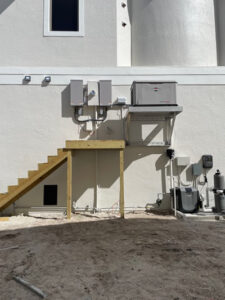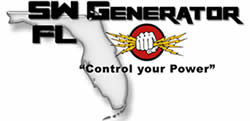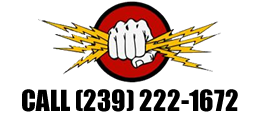 Best Practices for Generator Preparedness
Best Practices for Generator Preparedness
When it comes to emergency generator preparedness, having a whole house generator is an essential investment for homeowners. Whether you live in an area prone to natural disasters or experience power outages regularly, a whole house generator can provide peace of mind and reliable electricity during unforeseen events. However, simply owning a generator is not enough – it’s important to have a plan in place and follow best practices for maintaining and operating your equipment. As the leading provider of whole house generators in Collier and Lee County, SWFL Generator understands the importance of being prepared. Here are our top tips for emergency preparedness with whole house generators.
1. Choose the right size generator
The first step in being prepared for emergencies with a whole house generator is choosing the right size unit for your home. A professional electrician or generator technician can help determine the appropriate size based on your home’s square footage and electrical needs. It’s important not to overload your generator as it can lead to damage or malfunctioning.
2. Have regular maintenance checks
Just like any other piece of machinery, regular maintenance checks are crucial for ensuring the reliability of your whole house generator during emergencies. SWFL Generator offers maintenance plans that include yearly inspections by our experienced technicians to ensure that all components are working properly.
3. Keep extra fuel on hand
In case of extended power outages, it’s important to have extra fuel on hand for your whole house generator. Be sure to store it safely away from heat sources and follow proper safety guidelines while handling it.
4.What about transfer switches?
Transfer switches allow you to automatically switch between using utility power and backup power provided by your whole-house generator during a power outage – making them an essential component for emergency preparedness. At SWFL Generator, we offer various transfer switch options depending on your specific needs.
5.Identify priority appliances
During an outage situation where you may be running off backup power from your whole-house generator, it’s important to identify which appliances and electrical outlets are priorities. This includes essential items like refrigerators, freezers, medical devices, and heating/cooling systems. Knowing this ahead of time can help you manage your power usage and ensure that your generator is working efficiently.
6.Have a backup plan
While whole house generators are highly reliable, it’s always best to have a backup plan in case of unforeseen circumstances. This could include having extra fuel on hand or knowing the location of community shelters or emergency resources in case of an extended outage.
7.Stay informed
Staying informed about potential weather events or power outages in your area is key to being prepared with your whole house generator. Follow local news sources and sign up for alerts from alert systems such as FEMA’s Integrated Public Alert & Warning System (IPAWS).
In Conclusion
Investing in a whole house generator is an important step towards emergency preparedness for homeowners. By following these best practices and partnering with knowledgeable professionals like SWFL Generator, you can have peace of mind knowing that your home will stay powered during unexpected events. Contact us at (239) 222-1672 or visit our website at https://swflgenerators.com to learn more about our services and how we can help you be prepared with a whole house generator in Collier and Lee County.

